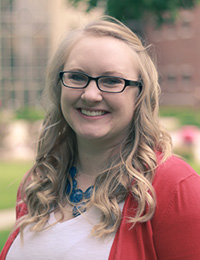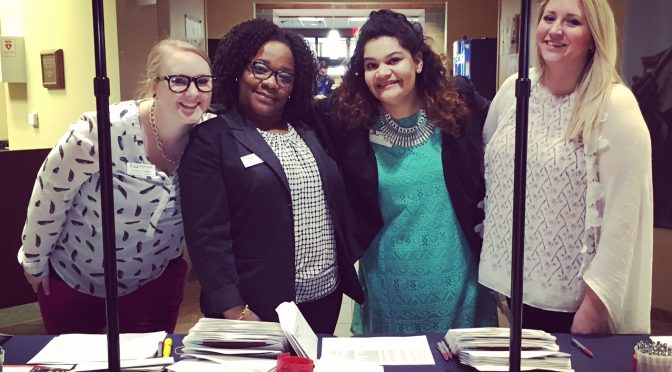When looking at which university to attend post-high school graduation, many students find themselves lost in the complexities of the decision-making process. Weighing the pros and cons of the different schools can be both exhausting and overwhelming, and is only the beginning.
In the wake of comparing schools is the application process, as well as the process of being admitted, which encompasses issues of financial aid, housing, and scholarships. Fortunately, Newman University has a designated staff of four admissions counselors trained to guide students through these whirlwind undertakings.
Immense responsibilities fall upon admissions counselors at Newman. They provide potential future students with information about the university, financial aid and scholarships, help set up campus visits, and review all admittance applications. The admissions counselors also find themselves traveling on behalf of the university, as one of their key responsibilities is representing Newman at high schools and college fairs primarily in Kansas, but also throughout the bordering states.
The heaviest traveling schedules kick off in the fall, the week after Labor Day when the admissions counselors embark on six to eight weeks of continuous travel. The duration of these trips vary depending on event scheduling, but typically consist of Sunday night departures, Thursday evening returns, and hotel living accompanied by fast-food eating in the days between.
During this busy season, the counselors often find themselves visiting between four and five high schools per day and then working a booth at a college fair that same evening — and though these routines are the usual, they are not the only travel schedules the admissions counselors abide by.

Georgia Drewes, an admissions counselor who has been with Newman since 2013, has already embarked on a unique travel opportunity during her three years representing the university. Drewes traveled to Indianapolis to attend the National Catholic Youth Conference in November 2015, where she set up a booth alongside other Catholic universities and was able to speak with prospective students who already possessed a level of connection to the university.
In the spring season, the admissions counselors partake in a much lighter traveling schedule, which consists of roughly two weeks of travel. Whereas the fall travel is centered around high school seniors, spring travel focuses more on perspective students out of the class of high school juniors.
While the counselors are on the road, they talk to hundreds of potential students about what Newman has to offer. Admissions Counselor Abbey Strunk, who has been a representative of the university since August, says that the small class sizes, variety of majors to choose from, and the opportunity to compete in collegiate level athletics often times allow Newman to “sell itself.”
Drewes draws from this idea as she says that the focus of the admissions counselors while on the road is not to recruit as many students as possible to Newman. A key focus of admissions counselors is determining whether or not Newman is going to be a good fit for each individual student.
“We’re not big on getting a lot of students,” said Drewes. “We’re big on getting the right students.”

